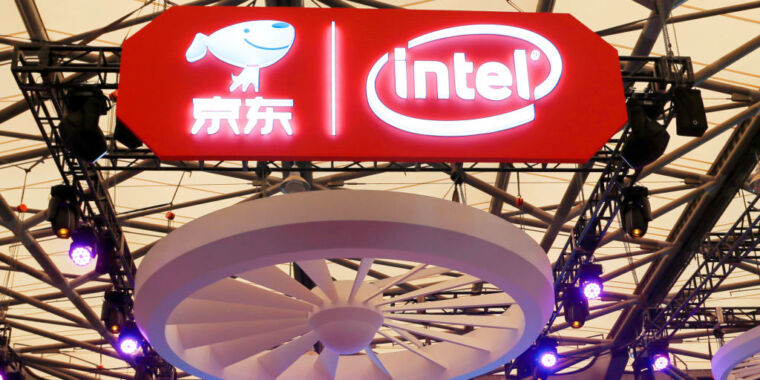
The booth of Intel at the China Digital Entertainment expo and Game expo is pictured in the photo.
Intel apologized for banning components from the western region of China after being attacked by Chinese nationalist media over the policy.
The episode quickly became one of the most talked-about topics online in China with the government being called on to hit Intel with fines and other punishments.
The controversy erupted after Intel sent a year-end letter to suppliers stating that components made in the north-western Chinese region of Xinjiang should not be used in its chips. The nationalist media outlet Guancha was interested in the message.
In a Chinese language social media post, Intel said it wanted to clarify that the ban was only for compliance with US law.
Intel apologized for the trouble caused to its Chinese customers, partners and the public.
The statement had been viewed 190m times by Thursday afternoon.
Multinationals are finding it more difficult to avoid politics, with Beijing's "reeducation" of a million Uyghur Muslims in its western Xinjiang region a particular flashpoint.
Advertisement
State media have whipped up nationalist opposition to brands such as Nike and H&M that voiced concerns about Xinjiang or vowed to eliminate the use of forced labor from the region from their supply chains.
Intel told the Financial Times that it intended to address concerns raised by its stakeholders in China about how it communicated legal requirements and policies to its global supplier network. It said it would remain compliant with US laws.
One commentator said that the company must abide by American laws but still want to make money in China. They should be fined billions at a time and used for R&D.
Intel has more than 10,000 employees in China and earned 25% of its revenue there last year. It has recently sold a memory chip factory in China to a South Korean chipmaker.
The Global Times in China accused Intel of biting the hand that feeds it. It said in an editorial that it was necessary to make it more expensive for companies to offend China.
Chinese celebrities have been forced to cut ties with companies that cause offense to avoid trouble with fans and the Communist party.
The studio of Wang Junkai, the lead singer of one of China's biggest boy bands, announced on Wednesday that it would cut all ties with the US chipmaker, adding that it had repeatedly urged the company to publicly express a "correct stance" and that "national interest trumped all
Wang was a brand ambassador for Intel.
The Financial Times is a division of The Financial Times. All rights are not to be redistributed, copied or modified.
